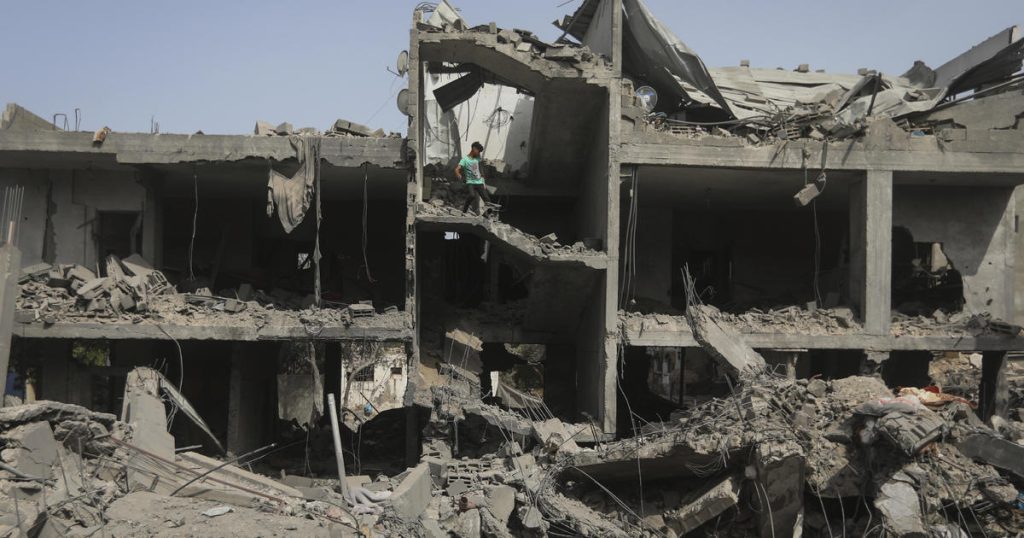An Israeli airstrike in a central Gaza refugee camp resulted in the deaths of at least 27 people, mostly women and children, according to reports from a hospital in the area. The bombing occurred during ongoing fighting in northern Gaza and discussions within Israel about postwar governance of the Palestinian territory. U.S. National Security Adviser Jake Sullivan was meeting with Israeli leaders and proposing an ambitious plan for Saudi Arabia to recognize Israel and help the Palestinian Authority govern Gaza in exchange for a path to statehood. There were tensions within Israel’s leadership on how to proceed, with Prime Minister Benjamin Netanyahu opposing Palestinian statehood and advocating for security control in Gaza.
The U.S. special envoy for hostage affairs, Roger Carstens, was set to travel to Doha, Qatar, to participate in a panel discussing the impacts of hostage-taking by state and non-state actors. The envoy’s visit aimed to address wrongful detention and hostage issues. Meanwhile, the war in Gaza continued to escalate, with Hamas regrouping in parts of northern Gaza. Israeli airstrikes resulted in a significant number of casualties and widespread destruction in the region, including in the Nuseirat refugee camp. The situation in Gaza remained dire, with reports of heavy artillery and airstrikes causing further devastation.
Israeli officials defended their military actions, attributing the high death toll and destruction to Hamas’s tactics of using civilian areas for military purposes. Netanyahu faced criticism from both within his government and among the public for the handling of the conflict. Calls for a cease-fire were met with resistance from Netanyahu, who sought to dismantle Hamas and secure the release of hostages held by the militant group. Pressure from the U.S. to find a resolution to the conflict, coupled with internal political tensions in Israel, added to the complexity of the situation.
As the conflict continued, the U.S. administration worked on a plan that involved Saudi Arabia’s recognition of Israel and assistance in rebuilding Gaza in exchange for a defense pact and other support. However, Netanyahu’s refusal to consider Palestinian statehood posed a challenge to these efforts. Gantz, Netanyahu’s political rival, expressed support for normalizing ties with Arab countries but emphasized Israel’s opposition to external imposition of a Palestinian state. The ongoing violence in Gaza, coupled with regional diplomatic efforts, underscored the complex dynamics at play in the Israeli-Palestinian conflict.
The war in Gaza had devastating humanitarian consequences, with thousands of Palestinians killed or displaced. Efforts to address the crisis and secure a lasting peace were complicated by the entrenched political positions of key players in the conflict. The U.S. played a pivotal role in diplomatic initiatives, seeking to navigate the diverse interests and demands of the parties involved. As the conflict continued unabated, the toll on civilians and the prospects for a sustainable resolution remained uncertain. The situation in Gaza highlighted the urgent need for international cooperation and concerted efforts to address the root causes of the conflict and pave the way for a just and lasting peace in the region.


